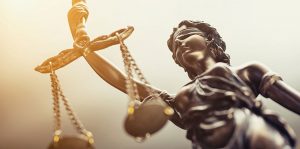Psalm 82

When we know there is an injustice, what do we do? When we vote, in whose interests do we exercise that power? When we buy what we consume, do we care about who benefits? Is doing nothing a neutral act? Have we got to the age where we say my time has gone it is up to others now? Do we favour those who will benefit us over others in greater need?
Papua New Guinea is a highly tribal country, nobody actually knows exactly how many tribes, but it is estimated there are around 850 tribal languages, in a country with a population of 8.5 million. It has a complicated preferential voting system. Each voter has 3 votes which they place in preferred order. It is common for each constituency to have 50 or more candidates standing and only one can be elected. Bribery is common place. I asked a woman how did she work out who to vote for? Her reply was, ‘In PNG you always give your first vote to the person from your tribe because they will make sure the most government money will be spent on your tribe. Then you give your second vote to the person who you think will do a good job.’ Partiality is culturally built into the election process and partiality is the outcome as those elected heavily favour their own. You may not consider it is much different in your own country or even in the church.
The Christian is not separated from the world in the sense of having no responsibility. Psalm 82 is a powerful condemnation of participating in injustice. God is not neutral, he is on the side of the weak and powerless, the poor and oppressed and he expects action to be taken. These are his words to those in responsibility, ‘How long will you judge unjustly and show partiality to the wicked? Give justice to the weak and the fatherless; maintain the right of the afflicted and the destitute. Rescue the weak and the needy; deliver them from the hand of the wicked.’ vv2-4
Commentators argue about who is meant by ‘gods.’ v1 God is placing himself in judgement over them, whether they are the gods of neighbouring nations, spiritual principalities and powers as mentioned by Paul or Israel’s own judges and kings. Jesus himself however when quoting the passage used it to mean the people of Israel. John 10.31-39 In verse 6 the psalmist enlarges on ‘gods’ as ‘sons of the most high’, a term used in Exodus to describe the nation of Israel. It is reasonable to take from the psalm that all who act unjustly will be judged by God, including his own people.
If God is so clear about his justice what excuse is there for his people to be silent over injustice? Inactivity or passivity clears the way for injustice to thrive. It is easy to look back at missed opportunities to act justly. It takes greater discernment and courage to raise one’s voice over contemporary issues, especially when it occurs close to home within the church. It is however clear in a way that it probably wasn’t to the first hearers of this psalm that God’s concern is a global concern. The concluding verse is a jolt to any navel gazing, obsessing introspection by the people of God. ‘Arise, O God, judge the earth; for you shall inherit all nations.’
Is there an injustice that we are ignoring?
What action have we taken to rescue the weak and the needy; to deliver them from the hand of the wicked?
Who is on the Lord’s side?
